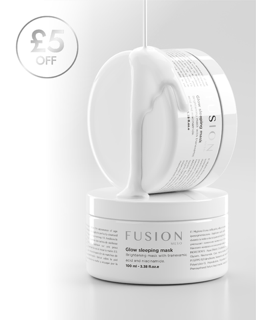The Sun and Your Skin: Understanding and Preventing Sun-Induced Aging
- marielarkin15
- Aug 13, 2024
- 3 min read
The warmth of the sun on your skin can feel wonderful, but prolonged exposure to its rays can have serious repercussions on your skin’s health and appearance. Sun exposure is one of the leading causes of skin aging, a process known as photoaging. This blog will delve into how sun exposure ages your skin, how to protect it, and which skincare products can help mitigate the effects of the sun. Plus, we'll share some practical tips and tricks to keep your skin looking youthful and radiant.
How Sun Exposure Ages the Skin
When your skin is exposed to the sun, ultraviolet (UV) rays penetrate and damage the skin cells. Here's a closer look at the aging effects of sun exposure:
Collagen Breakdown: UV rays break down collagen, the protein that provides structure and elasticity to the skin. This leads to wrinkles, sagging, and a loss of firmness.
Elastin Damage: The sun’s rays also damage elastin fibers, which help the skin return to its original position when stretched. Damaged elastin leads to a loss of skin elasticity and the formation of fine lines.
Pigmentation Changes: Prolonged sun exposure can cause hyperpigmentation, leading to age spots, freckles, and uneven skin tone. UV rays trigger melanin production, the pigment responsible for tanning and dark spots.
Dryness and Dehydration: The sun can strip the skin of its natural oils, causing dryness and dehydration. Dry skin is more prone to wrinkles and fine lines.
Thickened Skin: Chronic sun exposure can lead to the thickening of the skin's outer layer, resulting in a rough and leathery texture.
Protecting Your Skin from the Sun
To prevent sun-induced aging, it’s crucial to protect your skin from harmful UV rays. Here are some effective strategies:
Sunscreen: The cornerstone of sun protection is sunscreen. Use a broad-spectrum sunscreen with an SPF of at least 30. Apply it generously on all exposed skin and reapply every two hours, or more frequently if swimming or sweating.
Protective Clothing: Wear protective clothing such as long-sleeved shirts, wide-brimmed hats, and sunglasses. Clothing with UPF (Ultraviolet Protection Factor) offers additional protection.
Seek Shade: Avoid direct sun exposure, especially between 10 AM and 4 PM when UV rays are the strongest. Seek shade whenever possible.
Avoid Tanning Beds: Tanning beds emit harmful UV rays that can accelerate skin aging and increase the risk of skin cancer.
Lip Protection: Don’t forget your lips—they are also susceptible to sun damage. Use a lip balm with SPF protection.
Skincare Products That Help Mitigate Sun Damage
In addition to sun protection measures, incorporating specific skincare products can help repair and prevent further sun damage:
Antioxidants: Products containing antioxidants like vitamin C, vitamin E, and green tea extract help neutralise free radicals caused by UV exposure. They also aid in repairing damaged skin cells and improving skin tone.
Retinoids: Retinoids (retinol and prescription-strength retinoids) stimulate collagen production, improve skin texture, and reduce the appearance of fine lines and wrinkles.
Hyaluronic Acid: Hyaluronic acid is a powerful hydrator that can help replenish moisture lost due to sun exposure, keeping the skin plump and smooth.
Niacinamide: This form of vitamin B3 helps improve skin elasticity, enhance the skin barrier, even out skin tone, and diminish dullness.
Peptides: Peptides can help rebuild collagen and elastin, improving skin firmness and reducing the appearance of wrinkles.
Exfoliants: Regular exfoliation with products containing alpha hydroxy acids (AHAs) or beta hydroxy acids (BHAs) can help remove dead skin cells, promote cell turnover, and reveal smoother, more even-toned skin.
Tips and Tricks for Maintaining Youthful Skin
Stay Hydrated: Drink plenty of water throughout the day to keep your skin hydrated from the inside out. Proper hydration helps maintain skin elasticity and suppleness.
Healthy Diet: Consume a balanced diet rich in antioxidants, vitamins, and minerals. Foods like berries, leafy greens, nuts, and fatty fish support skin health.
Consistent Skincare Routine: Develop a daily skincare routine that includes cleansing, moisturising, and applying sunscreen. Consistency is key to maintaining healthy, youthful skin.
Avoid Smoking: Smoking accelerates skin aging by reducing blood flow and depleting the skin of oxygen and nutrients. Quitting smoking can significantly improve your skin’s health and appearance.
Sleep Well: Ensure you get enough sleep each night. During sleep, the skin repairs itself, and lack of sleep can lead to dull skin and the formation of wrinkles.
Sun exposure is a significant contributor to skin aging, but with the right protective measures and skincare products, you can minimise its impact and maintain youthful, radiant skin. Remember to prioritise sun protection, incorporate beneficial skincare ingredients, and follow healthy lifestyle habits to keep your skin looking its best. By taking these steps, you can enjoy the sun responsibly while preserving your skin’s beauty and health.




Comments